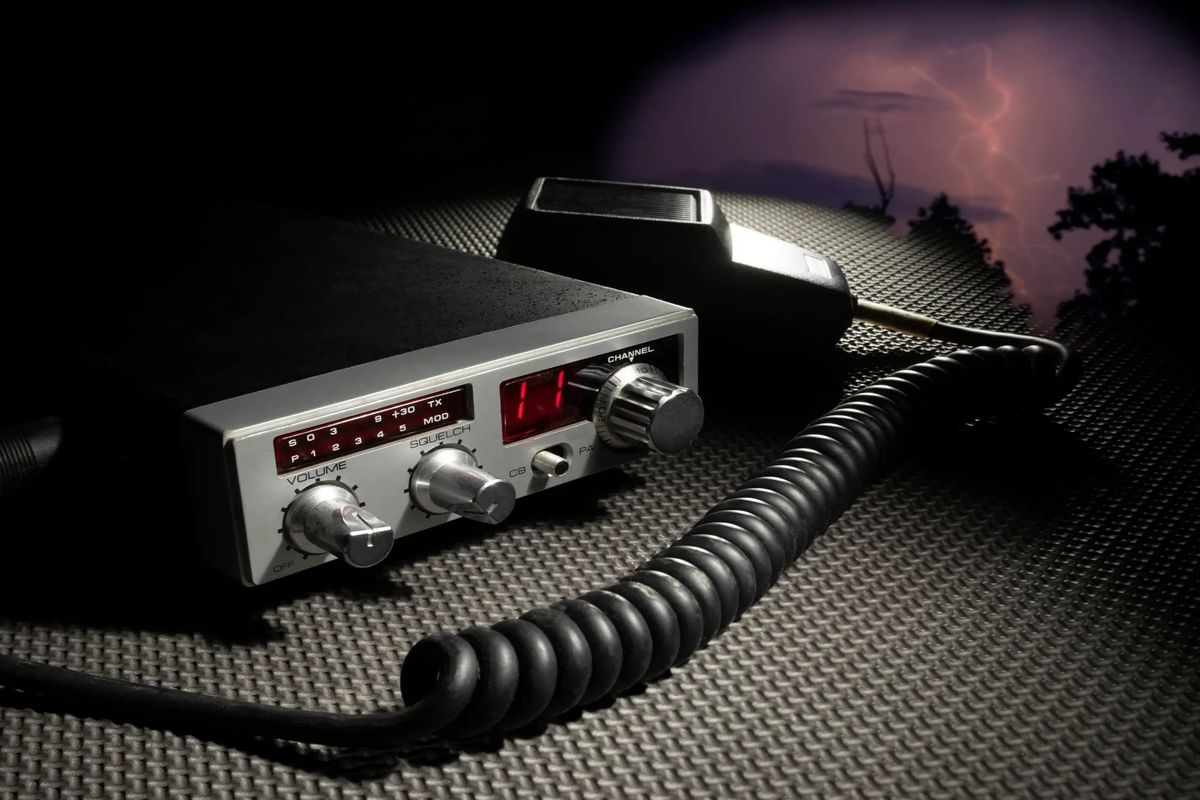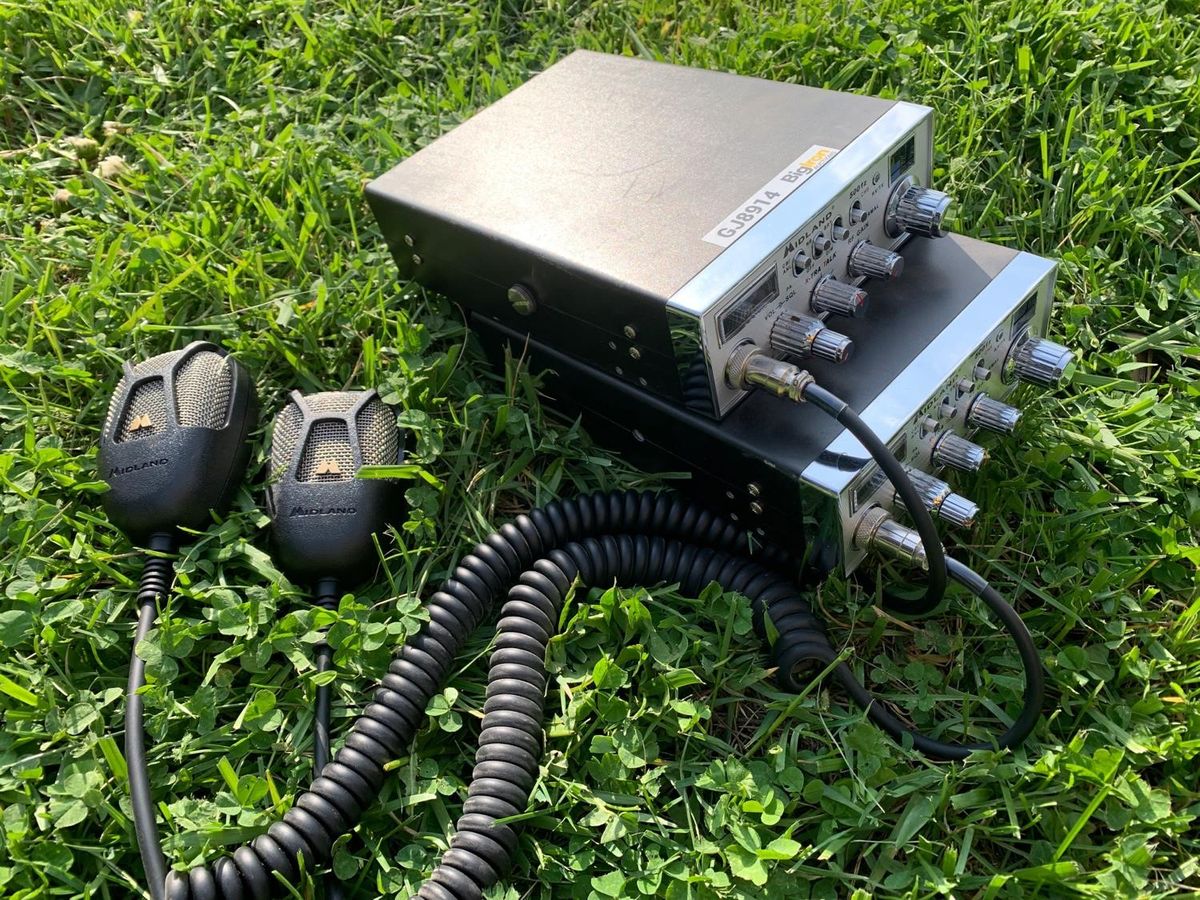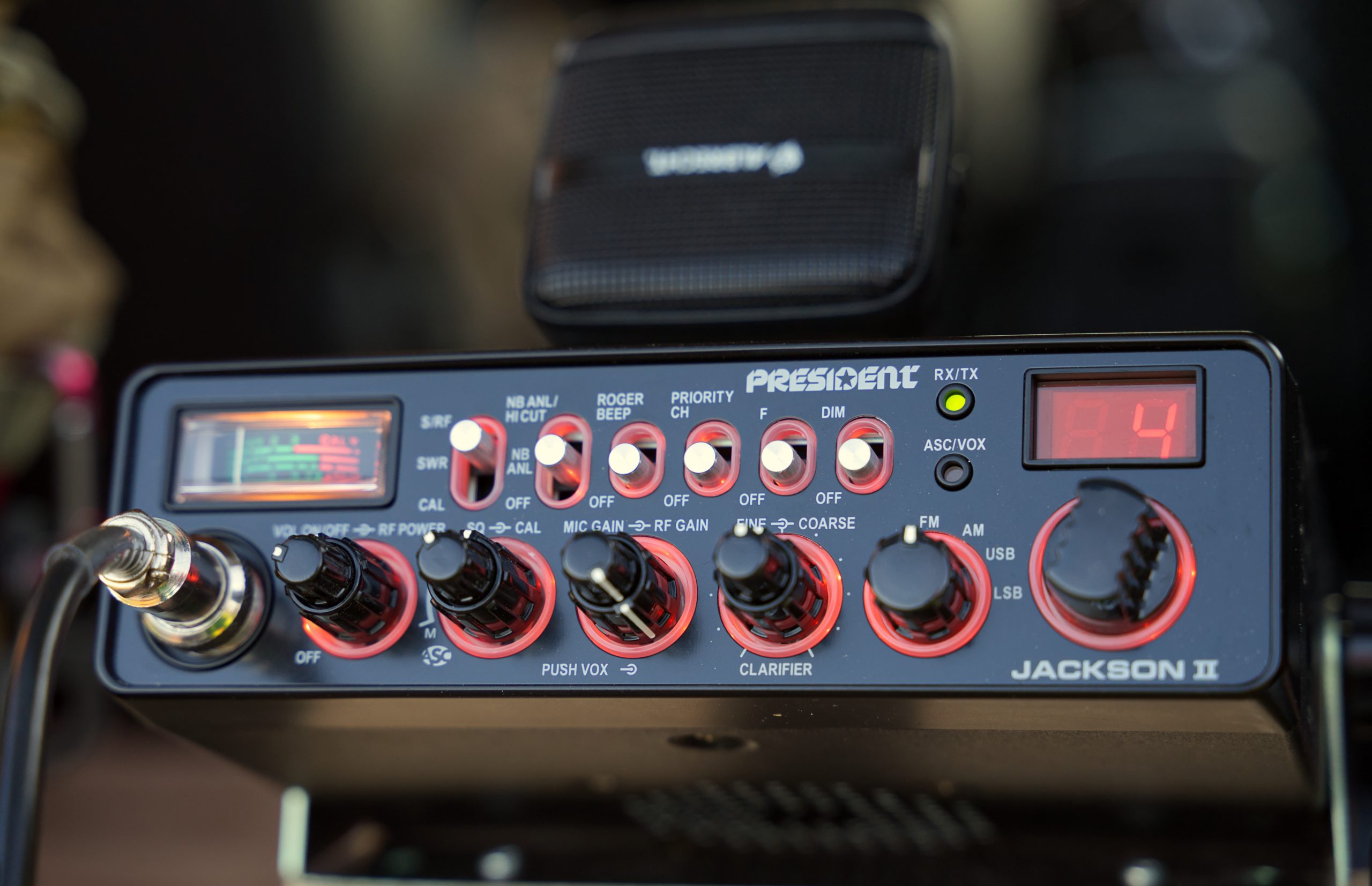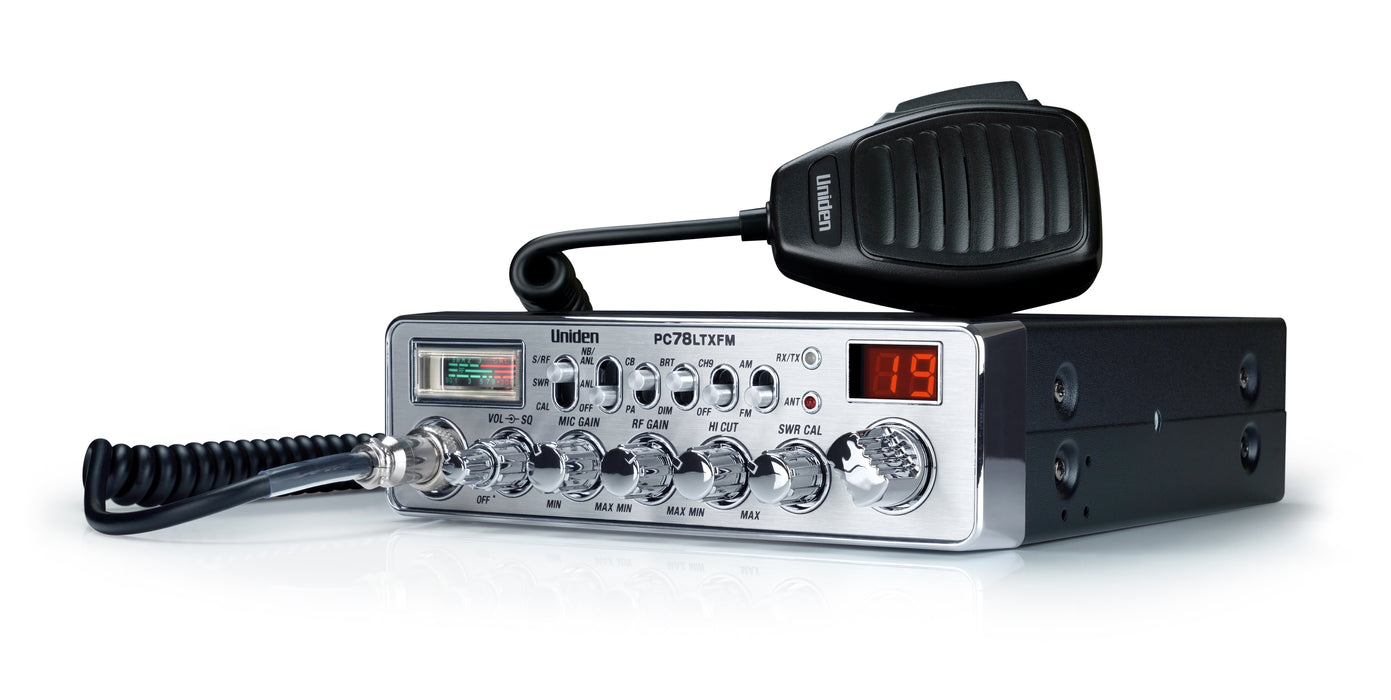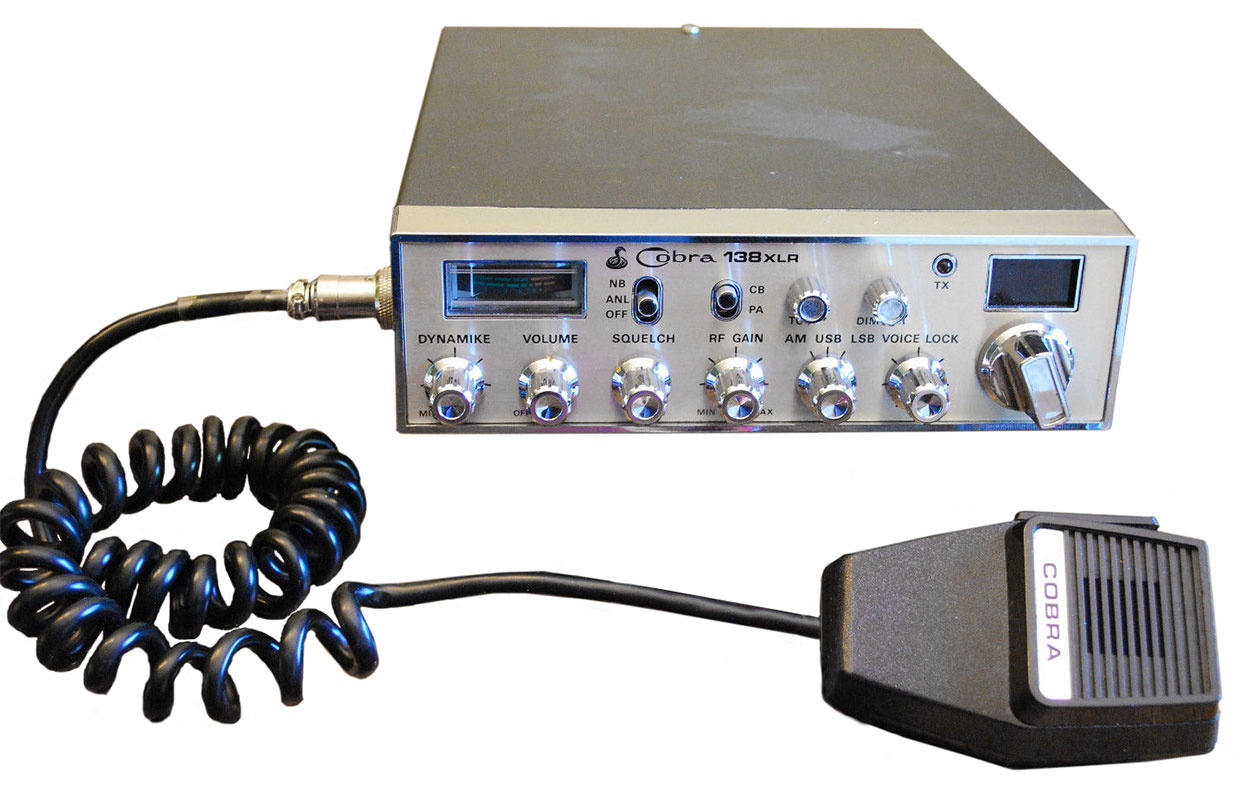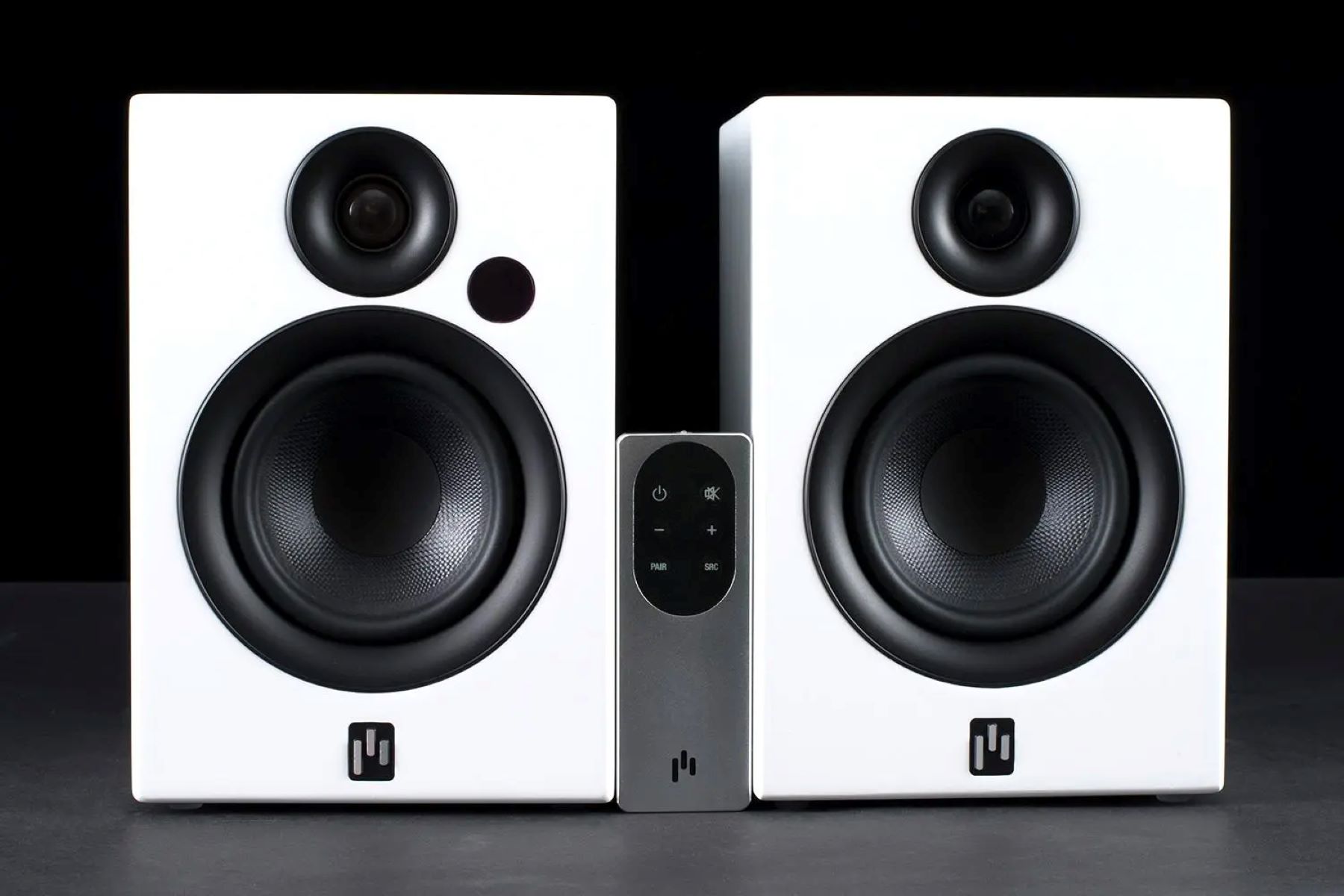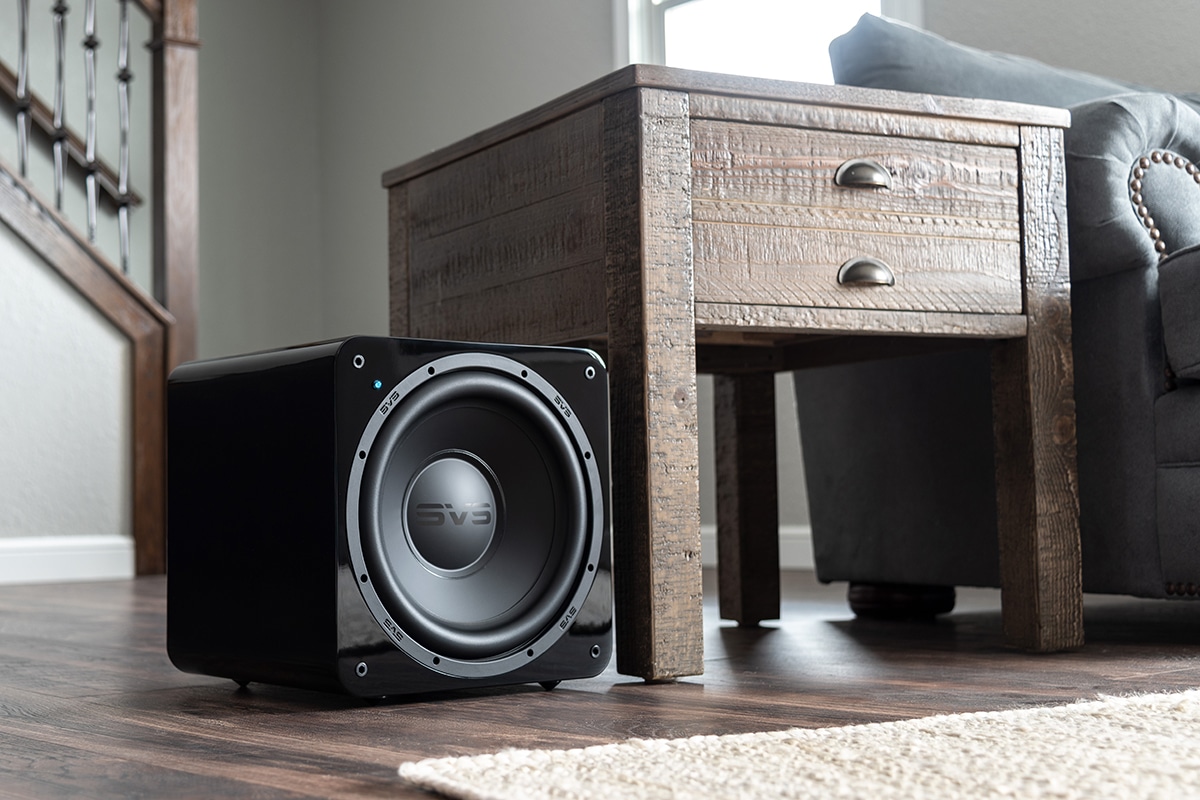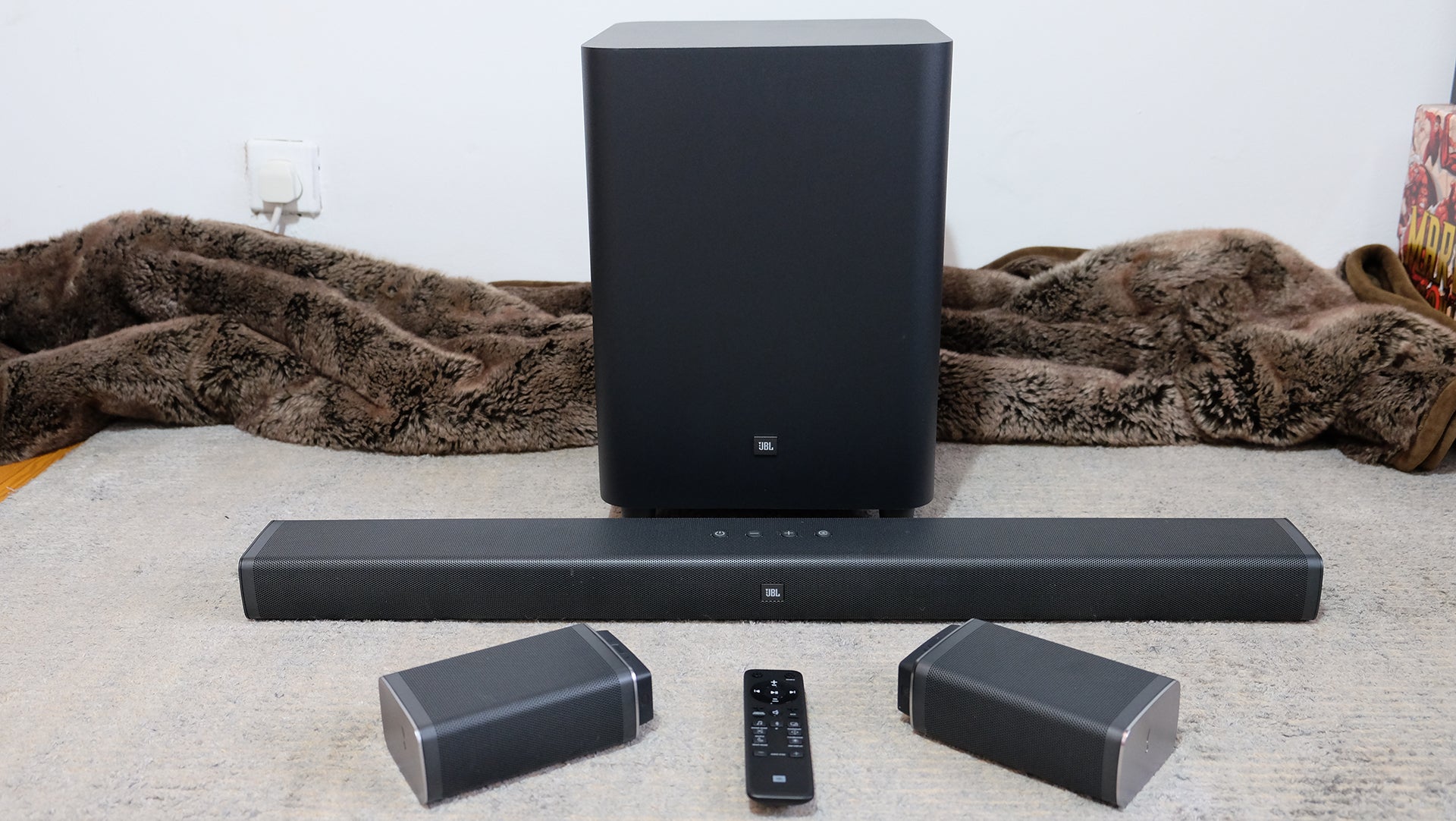Home>Devices & Equipment>Radio>How To Increase Watts On CB Radio
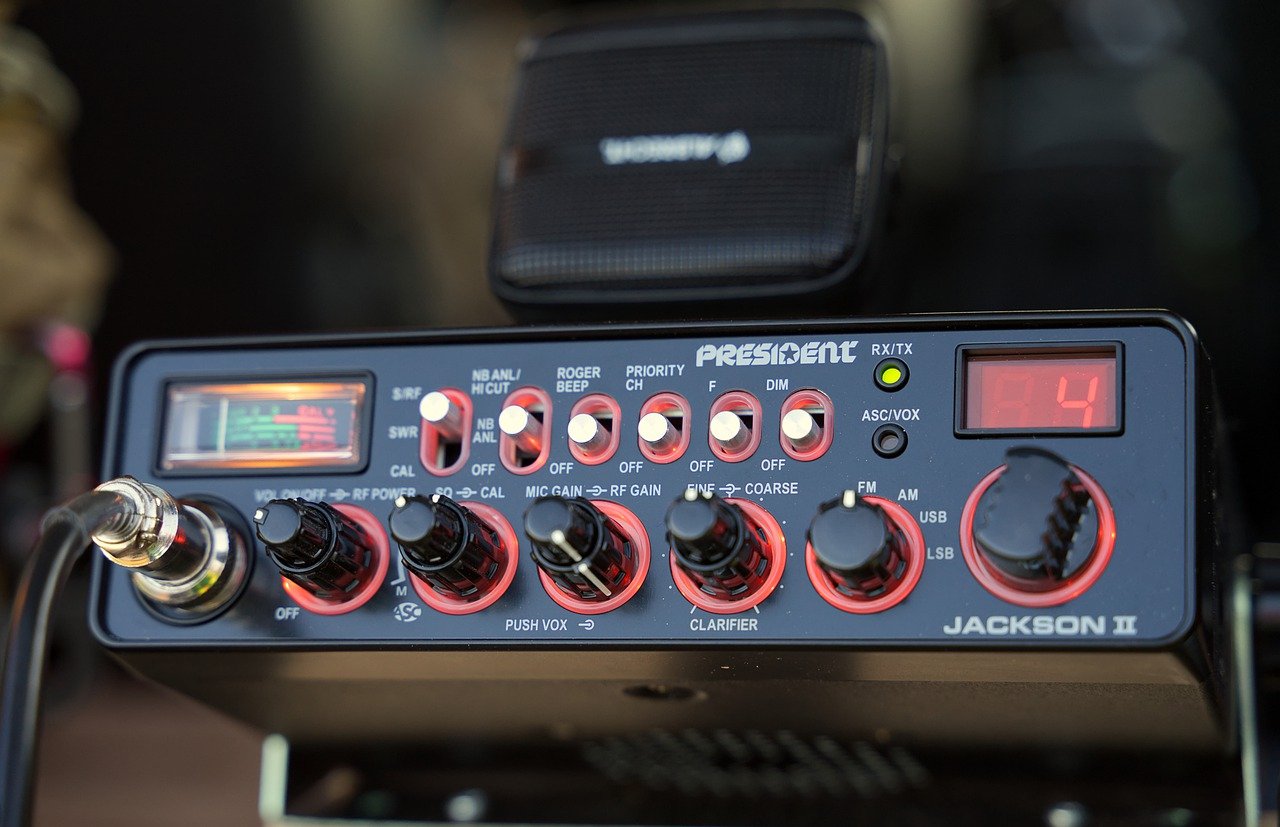

Radio
How To Increase Watts On CB Radio
Modified: January 22, 2024
Learn how to increase the wattage on your CB radio for enhanced signal strength and improved communication. Discover effective techniques and expert tips.
(Many of the links in this article redirect to a specific reviewed product. Your purchase of these products through affiliate links helps to generate commission for AudioLover.com, at no extra cost. Learn more)
Table of Contents
Introduction
Welcome to the world of CB radio, where conversations can travel for miles and the airwaves are alive with chatter. CB (Citizens Band) radio has been a popular means of communication for truckers, off-roaders, and radio enthusiasts for decades. While CB radios are known for their reliable communication capabilities, there are times when you may want to increase their wattage to extend their range or improve signal quality.
CB radio wattage refers to the power output of the radio transmitter, which determines how far your signal can reach. By increasing the wattage, you can potentially enhance your radio’s performance, allowing you to communicate with other CB radio users further away.
However, it’s important to note that there are limitations and regulations surrounding CB radio wattage that you must comply with. The Federal Communications Commission (FCC) strictly regulates the wattage for CB radios, and exceeding the legal limit can result in fines or penalties.
In this article, we will explore various ways to increase wattage on a CB radio while staying within legal boundaries. We will discuss techniques such as upgrading the antenna, using a linear amplifier, adjusting SWR levels, improving grounding and power supply, and upgrading radio components. By understanding these methods and applying them correctly, you can optimize your CB radio’s wattage and enhance your overall communication experience.
Understanding CB Radio Wattage
CB radio wattage refers to the power output of the radio transmitter, measured in watts. It determines the strength of the signal that your CB radio emits, which directly affects your communication range and signal quality. The higher the wattage, the further your signal can reach.
CB radios typically come in two power options: 4-watt radios, which are the standard power level allowed by the FCC, and 40-watt radios, which are considered “export” radios and are not legal for use in the United States. It’s important to note that using a 40-watt radio on CB frequencies is illegal and can result in hefty fines or even confiscation of your equipment.
The wattage of a CB radio has its limitations. Factors such as antenna efficiency, atmospheric conditions, and terrain can impact the effective communication range. Even with increased wattage, you may not experience a significant improvement in range if other factors are hindering the signal’s transmission and reception.
It’s crucial to familiarize yourself with the legal limitations and regulations set forth by the FCC regarding CB radio wattage. For most users, sticking to the 4-watt power limit is the safest and most legal option. It ensures compliance with the law while still allowing for effective communication within a reasonable range.
While increasing wattage can potentially improve your CB radio’s performance, it’s important to strike a balance between power and legality. It’s always advisable to prioritize safety, legality, and adherence to regulations to avoid any unnecessary legal issues.
Legal Limitations of CB Radio Wattage
When it comes to CB radio operations, there are strict legal limitations and regulations surrounding the wattage you can use. The Federal Communications Commission (FCC) has set specific rules to ensure fair and efficient use of the CB radio spectrum.
For most users in the United States, the legal limit for CB radio wattage is 4 watts. This power limit ensures that all users have an equal opportunity to communicate and minimizes the chances of interference with other radios or services. It’s crucial to remember that exceeding this limit is illegal and can result in fines, penalties, or even confiscation of your equipment.
Using a linear amplifier to boost the wattage of your CB radio may seem tempting. However, it’s important to note that using amplifiers to increase power output on CB radios is generally illegal under FCC regulations. Amplifiers can introduce unwanted interference and can cause disruptions to the CB radio spectrum, affecting the communication of other users.
It’s also worth mentioning that using “export” radios, which have higher wattage capabilities but are not authorized for use in the United States, is illegal. These radios typically allow wattage levels above the legal limit and may even offer adjustable power settings. It’s essential to avoid using such radios to avoid violating FCC regulations and facing legal consequences.
It’s important to respect the legal limitations set forth by the FCC to maintain an orderly and fair CB radio environment. Complying with the regulations not only ensures your safety but also helps maintain the integrity of the CB radio spectrum for all users. Remember, it’s better to focus on optimizing other aspects of your CB radio system, such as the antenna and radio components, to achieve better performance within the legal limits.
Enhancing Transmit Power
While it’s important to abide by the legal limitations of CB radio wattage, there are ways to optimize your transmit power within the allowed boundaries. By implementing certain techniques, you can potentially enhance the performance and range of your CB radio.
One of the simplest and most effective ways to enhance transmit power is by ensuring that your CB radio is operating at its maximum power output. Some radios have adjustable power settings, allowing you to control the wattage level. Make sure your radio is set to the highest power setting allowed by the FCC, typically 4 watts.
Next, check your antenna. The antenna is a crucial component that determines how efficiently your radio can transmit and receive signals. Ensure that your antenna is properly mounted and securely connected to your CB radio. Consider upgrading to a higher-quality antenna with better gain and efficiency. A longer antenna can also improve performance by providing a higher radiation angle and extending the range of your signals.
Additionally, consider investing in a high-quality coaxial cable to connect your radio to the antenna. A good coaxial cable will have low signal loss, allowing for efficient power transmission from the radio to the antenna. Avoid using low-quality or damaged cables, as they can significantly impact your radio’s performance.
Another technique to enhance transmit power is to improve the grounding of your CB radio system. A solid and properly grounded system reduces electrical noise and interference, resulting in better overall signal performance. Make sure that your radio, antenna, and other components are grounded according to the manufacturer’s instructions or industry best practices.
Lastly, ensure that you have a reliable power supply. Use a high-quality power source or consider using a power supply instead of relying solely on batteries. A consistent and clean power supply can help optimize your transmit power and prevent fluctuations or issues that may affect your radio’s performance.
By implementing these techniques, you can potentially enhance the transmit power of your CB radio within the legal limitations. Remember that optimal performance is not just about raw power but also about efficiency and the overall quality of your radio system.
Upgrading the Antenna
One of the most effective ways to improve the performance and range of your CB radio is by upgrading the antenna. The antenna plays a crucial role in transmitting and receiving signals, and a high-quality antenna can significantly enhance your communication capabilities.
When considering an antenna upgrade, there are several factors to keep in mind. First, consider the type of antenna. There are different types available, such as the whip antenna, fiberglass antenna, and magnetic mount antenna, each with its own characteristics and performance attributes. Research the advantages and disadvantages of each type to determine which one best suits your needs.
Next, consider the length of the antenna. In general, longer antennas tend to offer better performance in terms of signal range and efficiency. A longer antenna can provide a higher radiation angle and improve the transmission and reception of signals. However, keep in mind any height restrictions or limitations imposed by your vehicle or surroundings.
Antenna gain is another important factor to consider. Antenna gain refers to the ability of the antenna to concentrate or focus the transmitted and received signals. Higher gain antennas can improve signal strength and extend the communication range. However, be aware that higher gain antennas are more directional, meaning they may have a narrower beamwidth and require more precise aiming.
Proper installation is crucial when upgrading your antenna. Make sure the antenna is securely mounted and properly grounded. Follow the manufacturer’s instructions and guidelines for installation to ensure optimal performance and safety.
Additionally, consider investing in a high-quality coaxial cable to connect your CB radio to the antenna. A low-quality or damaged cable can cause signal loss and affect the overall performance of your radio system. Look for coaxial cables with low signal loss and good shielding properties to ensure efficient power transmission.
Upgrading your antenna can greatly improve the performance and range of your CB radio. Remember to research and choose the right type of antenna for your specific needs, consider the length and gain, and pay attention to proper installation and cable quality. By maximizing the capabilities of your antenna, you can enhance your overall communication experience and make the most of your CB radio system.
Using a Linear Amplifier
Using a linear amplifier is one technique that some CB radio enthusiasts consider to increase the power output of their radios. However, it’s important to be aware of the legal implications and potential drawbacks of using an amplifier.
A linear amplifier is a device that strengthens the signal coming from the CB radio, resulting in an increased power output. This amplification can potentially extend the range of your CB radio and improve signal quality. However, it’s crucial to note that using amplifiers to increase power output on CB radios is generally illegal under FCC regulations.
Amplifiers can introduce unwanted interference and disrupt the CB radio spectrum, impacting the communication of other users. The FCC strictly regulates the use of amplifiers on CB radios to maintain fair and efficient use of the radio frequencies. Violating these regulations can result in severe penalties, including fines and even the confiscation of your equipment.
If you are considering using an amplifier, it’s essential to research and understand the legal restrictions in your location. Some countries may have different regulations regarding amplifier usage. It’s always advisable to check with the appropriate regulatory authorities to ensure compliance with the law.
Furthermore, using an amplifier doesn’t guarantee improved performance in all situations. Factors such as antenna quality, atmospheric conditions, and terrain still play significant roles in the effective communication range of your CB radio. Investing in other aspects of your radio system, such as upgrading the antenna or improving grounding, may yield better results without violating any regulations.
Ultimately, it’s crucial to prioritize legality and adherence to regulations when operating a CB radio. Understanding and respecting the limitations set by the FCC not only ensures your compliance with the law but also helps maintain a fair and efficient CB radio environment for everyone.
Adjusting SWR Levels
SWR (Standing Wave Ratio) is a measurement of how efficiently your CB radio antenna is transmitting and receiving signals. High SWR levels can result in poor signal quality, reduced range, and potential damage to your radio and antenna. Adjusting the SWR levels is an important step in optimizing your CB radio’s performance.
To adjust the SWR levels, you will need an SWR meter. This device measures the SWR and allows you to make the necessary adjustments to minimize it. Here’s how you can adjust the SWR levels:
- Connect the SWR meter to your CB radio using a coaxial cable.
- Disconnect the antenna from the radio and connect it to the SWR meter.
- Set the SWR meter to the appropriate frequency range for CB radios (typically around 27 MHz).
- Ensure that your radio is set to the maximum power output level (usually 4 watts).
- Key the microphone of your CB radio to transmit a signal.
- Observe the SWR meter reading. Ideally, you want the SWR to be as close to 1:1 as possible.
- If the SWR reading is too high (e.g., above 2:1), adjust the length of your antenna to reduce the SWR. For a high SWR reading, decrease the length of the antenna slightly.
- Repeat the process of measuring the SWR and adjusting the antenna length until you achieve an acceptable SWR level.
- Once the SWR is within the desired range (typically below 2:1), reconnect the antenna to your CB radio.
It’s important to note that adjustments to the antenna length should be done in small increments, as excessive alterations can lead to further issues with SWR levels.
By adjusting the SWR levels, you can ensure maximum power transfer from the CB radio to the antenna, resulting in improved signal transmission and reception. It’s recommended to perform periodic SWR checks and adjustments to maintain optimal performance.
Improving Grounding and Power Supply
Achieving proper grounding and ensuring a reliable power supply are crucial factors in optimizing the performance of your CB radio. By improving grounding and power supply, you can reduce interference, enhance signal quality, and maintain a stable operation of your radio system.
Grounding refers to establishing a solid connection between the various components of your CB radio system and the earth. Here are some steps to improve grounding:
- Ensure that your CB radio is properly grounded according to the manufacturer’s instructions. This typically involves connecting a ground wire from the radio’s chassis to a suitable grounding point, such as a metal vehicle frame or a grounding rod.
- Check the antenna mount and ensure it has a proper ground connection. Make sure there is metal-to-metal contact between the antenna mount and the vehicle’s body or a separate grounding point.
- Inspect all grounding connections for corrosion, loose connections, or damage. Clean and tighten any loose connections or replace damaged wires or terminals.
A solid and properly functioning ground helps reduce electrical noise and interference, resulting in clearer transmissions and better reception.
In addition to grounding, ensuring a reliable power supply is essential for optimal CB radio performance. Here are some steps to improve your power supply:
- Check your power source or battery for proper voltage output. Low voltage can adversely affect your radio’s functionality and range. Use a voltmeter to measure the voltage and ensure it is within the manufacturer’s specified range.
- Consider using a power supply instead of relying solely on batteries. A power supply provides a consistent and clean power output, minimizing fluctuations that could affect your radio’s performance.
- Use high-quality power cables and connectors to minimize power loss and ensure a stable power supply. Inspect cables for any damage or loose connections, and replace them if necessary.
By improving grounding and power supply, you can reduce unwanted noise and interference, improve signal quality, and ensure the longevity of your CB radio system. Regularly inspect and maintain grounding connections and power supply components to optimize the performance and reliability of your CB radio.
Upgrading Radio Components
Upgrading the components of your CB radio can have a significant impact on its performance and overall communication experience. By replacing or enhancing certain key components, you can optimize your radio’s capabilities and improve its range, signal quality, and functionality.
One component worth considering for an upgrade is the microphone. The microphone plays a crucial role in transmitting your voice clearly and effectively. Upgrading to a high-quality microphone can enhance the clarity and intelligibility of your transmissions, making communication smoother and more enjoyable.
Another component to consider is the speaker. The speaker is responsible for delivering clear and audible sound from your CB radio. If you find that the built-in speaker lacks volume or produces distorted sound, upgrading to a higher-quality external speaker can greatly improve audio quality and allow for better communication, especially in noisy environments.
The modulation kit is another component that can be upgraded to enhance the modulation of your CB radio signal. Modulation kits improve the clarity and strength of your transmission, allowing your voice to be heard clearly by other CB radio users.
Additionally, you may consider upgrading the radio’s internal RF power amplifier. This component can boost the radio’s power output and enhance signal strength, resulting in an increased range of communication. However, it’s important to note that modifying the internal circuitry of a CB radio may void the manufacturer’s warranty and can also be illegal if it results in exceeding the legal power limits set by the FCC.
When considering upgrades, it’s essential to research compatible components and ensure they are compatible with your specific CB radio model. Look for reputable manufacturers that offer reliable and high-quality components to maximize the benefits of the upgrades.
Upgrading radio components can significantly enhance the performance and functionality of your CB radio. Whether it’s improving microphone clarity, upgrading the speaker for better audio output, enhancing modulation, or considering internal RF power amplifier upgrades, these enhancements can help you achieve a more enjoyable and efficient communication experience.
Conclusion
In conclusion, optimizing the wattage and performance of your CB radio requires a combination of knowledge, understanding, and adherence to legal limitations. While it’s natural to want to push the boundaries and increase wattage for better range and signal quality, it’s crucial to prioritize legality and respect the regulations set forth by the FCC.
Understanding CB radio wattage and its limitations is a fundamental starting point. Familiarize yourself with the legal limit of 4 watts and the potential consequences of exceeding this limit. Remember that using amplifiers or “export” radios with higher wattage capabilities can lead to legal issues and disrupt the CB radio spectrum.
Instead of solely focusing on increasing wattage, consider other techniques to optimize your CB radio’s performance. Upgrading the antenna can significantly improve transmission and reception capabilities. Choose the right type of antenna, invest in high-quality coaxial cables, and ensure proper installation and grounding.
Adjusting SWR levels is another important aspect of optimizing CB radio performance. Use an SWR meter to measure and adjust SWR to minimize interference and improve signal quality. Improving grounding connections and ensuring a reliable power supply are also vital for optimal performance.
Lastly, upgrading radio components, such as the microphone, speaker, and modulation kit, can further enhance the overall communication experience. Research compatible components and choose reputable manufacturers to maximize the benefits of these upgrades.
By combining these techniques and strategies, you can optimize your CB radio’s performance while staying within legal boundaries. Enjoy extended range, improved signal quality, and clearer communication as you navigate the world of CB radio. Remember to always prioritize safety, legality, and respect for other radio users to maintain a harmonious and efficient CB radio environment.

